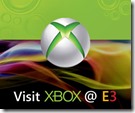 One of the most intriguing announcements coming out of the Xbox press event here at E3 yesterday involves SmartGlass, Microsoft’s upcoming answer to a second screen technology for the living room, rivaling Apple’s Airplay and the Nintendo Wii U console.
One of the most intriguing announcements coming out of the Xbox press event here at E3 yesterday involves SmartGlass, Microsoft’s upcoming answer to a second screen technology for the living room, rivaling Apple’s Airplay and the Nintendo Wii U console.
The idea, simply, is to extend the experience of Xbox in your living room to a second and third screen: a Windows 8 tablet or Windows Phone, an iPad or iPhone, or an Android device. Microsoft is demonstrating SmartGlass here at E3 (word is that development on SmartGlass is in its very early stages, however) showing map overviews and character information for Game of Thrones, details about a movie you’re watching, or added information about games in progress. From the press release:
Microsoft Corp. today unveiled a bold new vision for enjoying entertainment at home and on the go with Xbox SmartGlass. Launching this year, Xbox SmartGlass is an application for Windows 8, Windows Phone, and other portable devices that connects phones, PCs and tablets with your Xbox 360 console to make your entertainment smarter, more interactive and more fun. The intelligence of Xbox SmartGlass makes your entertainment more engaging, Web surfing more effortless, and playing games more immersive by delivering companion content and control to enhance your TV experience.
“Xbox is on a mission to make the entertainment that you love even more amazing,” said Don Mattrick, president of the Interactive Entertainment Business at Microsoft. “With Xbox SmartGlass, we are lighting up entertainment across your phone, tablet, PC and TV in a completely new way. If you love to play games, watch TV and movies, surf the Web, or listen to music, there has never been a better time to be on Xbox.”
Two years after the launch of Kinect for Xbox 360, Microsoft unveiled the next step in its journey to make Xbox synonymous with entertainment by unveiling Xbox SmartGlass, Internet Explorer for Xbox, and new TV, movie and music offerings.
At a baseline, SmartGlass will provide connections between the Xbox and SmartGlass enabled devices, allowing users to move their content from a device to the Xbox screen and back again, and provide basic controls (play, fast forward, etc). These basic functions will be available whether or not a piece of content is “SmartGlass enabled”. In addition, we were told, SmartGlass would provide some basic cast and credits information for movies, although we weren’t provided any specifics on where this info would come from (perhaps Xbox Video and Music, the successors to Zune?)
On top of that, SmartGlass will work by hosting HTML5 apps, at least at first on Microsoft servers, “in the cloud” (we were told that Microsoft isn’t ready to talk yet about whether or not content could be stored in other clouds or locally). These apps, working with a SmartGlass SDK and set of APIs, would communicate with the local SmartGlass apps (say, on your iPad), and then with your Xbox. The APIs would provide an interface for getting to such Xbox functionality as time code information, for example, to allow developers to tie specific content to a certain point in a game or movie (you can see an example of this in the SmartGlass Game of Thrones app, where information on a second screen app changes based on the where the action is taking place in the episode.
In addition, 3rd party Xbox developers will be able to use Xbox APIs directly from their applications, providing a deeper level of interaction with SmartGlass enabled games and entertainment.
Using HTML5 as a baseline is what will allow the cross platform capabilities of SmartGlass, and hosting SmartGlass applications will allow Microsoft to control communication to your Xbox without compromising security and performance, it seems to us. This means that in order for SmartGlass to work, your device will communicate with the SmartGlass servers, which will communicate with your Xbox, and back again. (For a person stuck with intermittent to non-existent connectivity in the middle of a tech convention in Los Angeles this seems pretty scary, but in your living room, with a high bandwidth connection for your Xbox, the experience should be smooth and seamless).
The iPad is already fast becoming a living room companion, as users pull up some of the same information SmartGlass promises to provide from the likes of IMDb movie databases and the like, and it remains to be seen whether SmartGlass will sell more Xboxes or just augment the ones already in place, and what advantages it will have over what users can already accomplish. Still, SmartGlass will allow content creators to go deeper, and companies like HBO, EA Sports, and Paramount are already working on SmartGlass apps.
SmartGlass will be ready, in at least some initial form, “this holiday”, we were told, but of course that doesn’t mean it will be fully cross platform right out of the gate or enabled for anything but a small sample set of content. Still, with its cross platform capabilities, standards based HTML5 roots, and the considerable power of the Xbox brand behind it, SmartGlass could be a surprise winner, and a big help in Microsoft’s race for the living room.